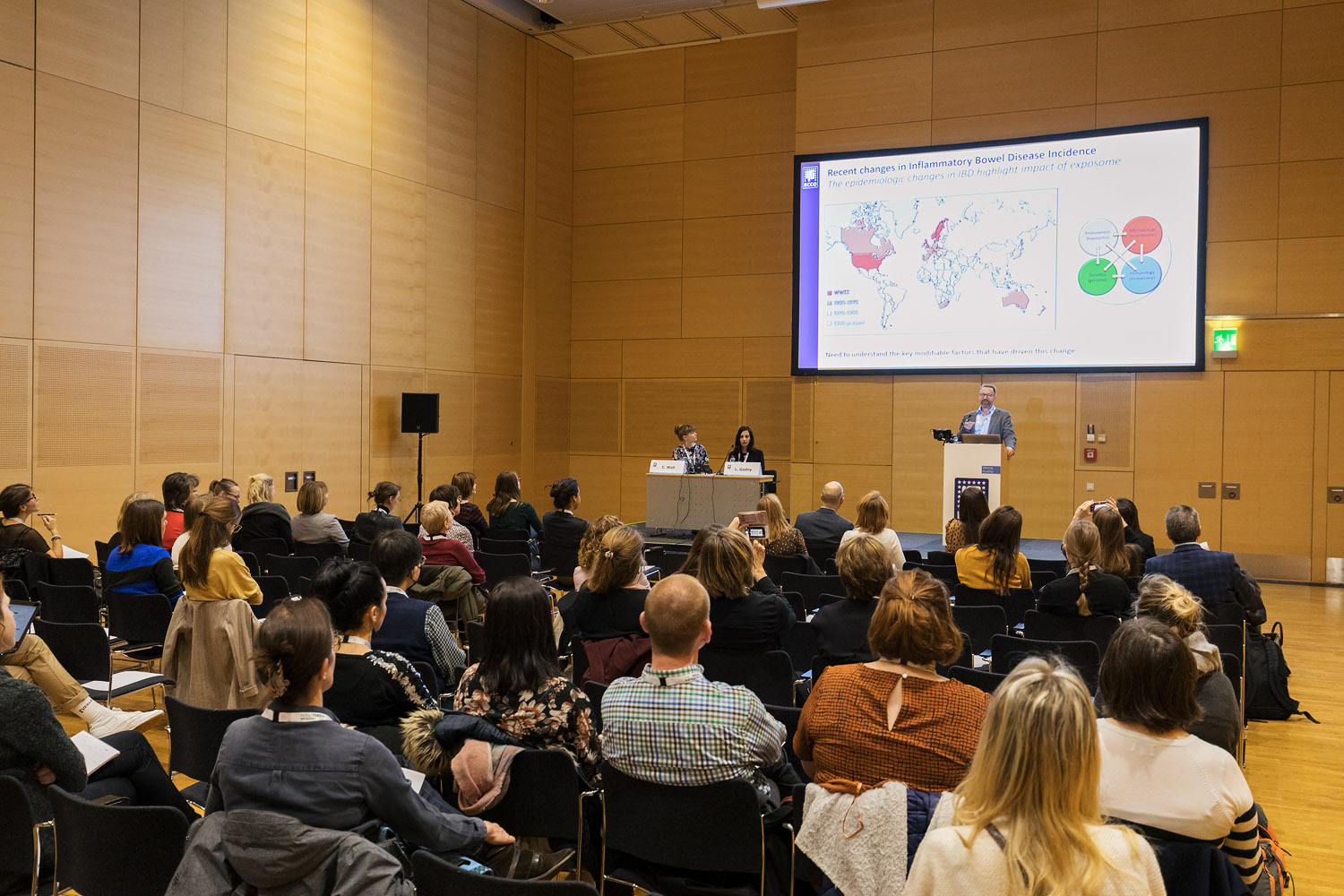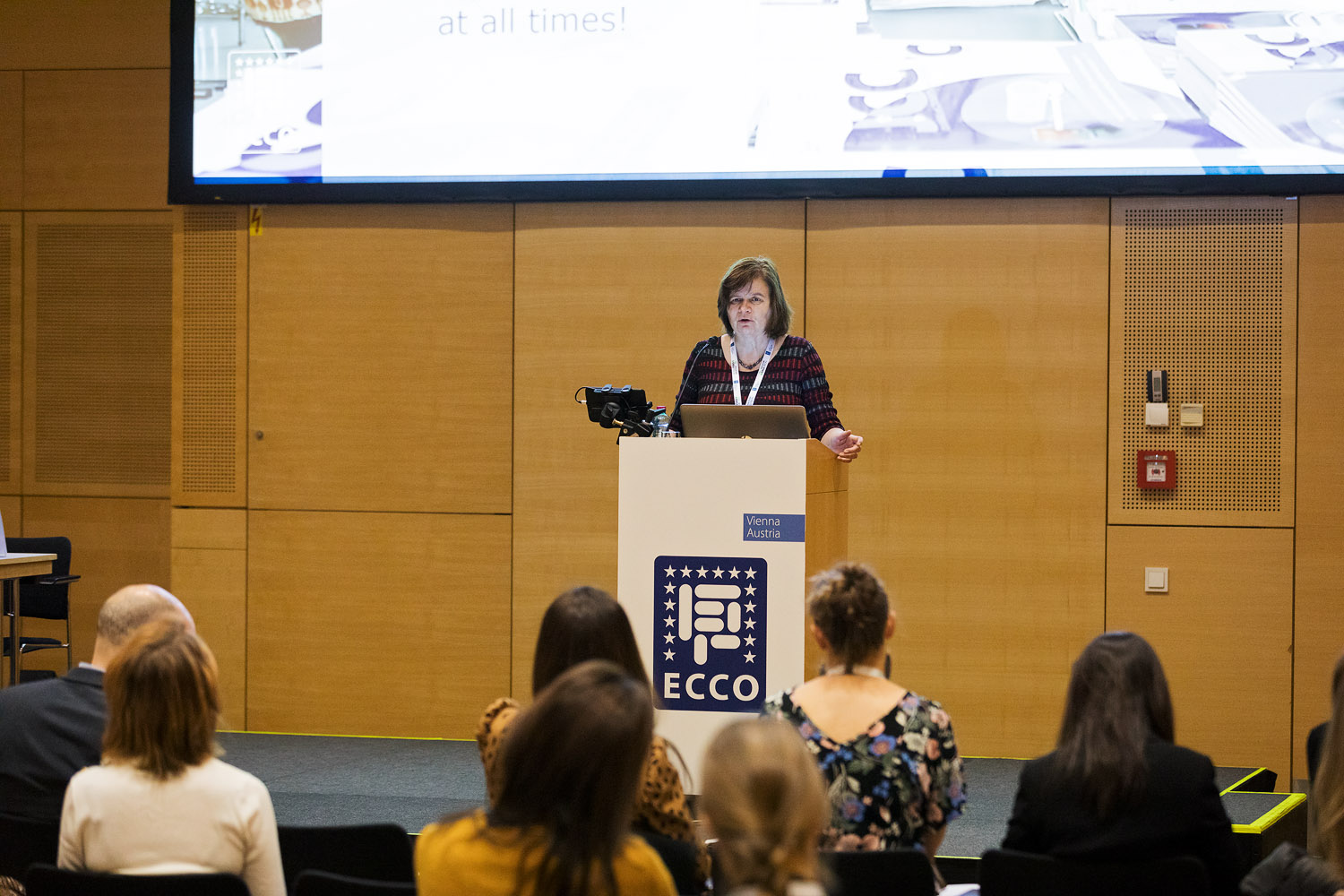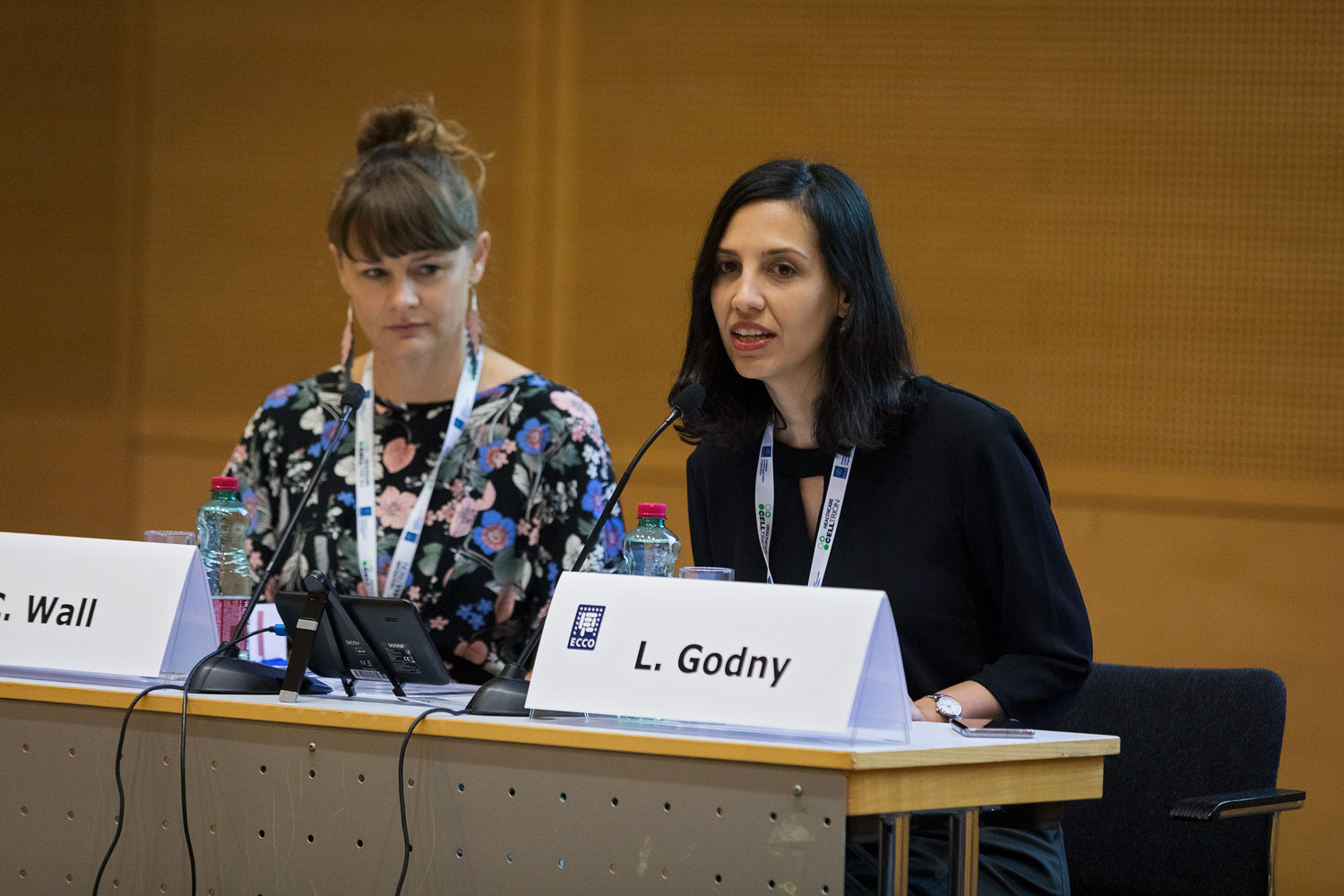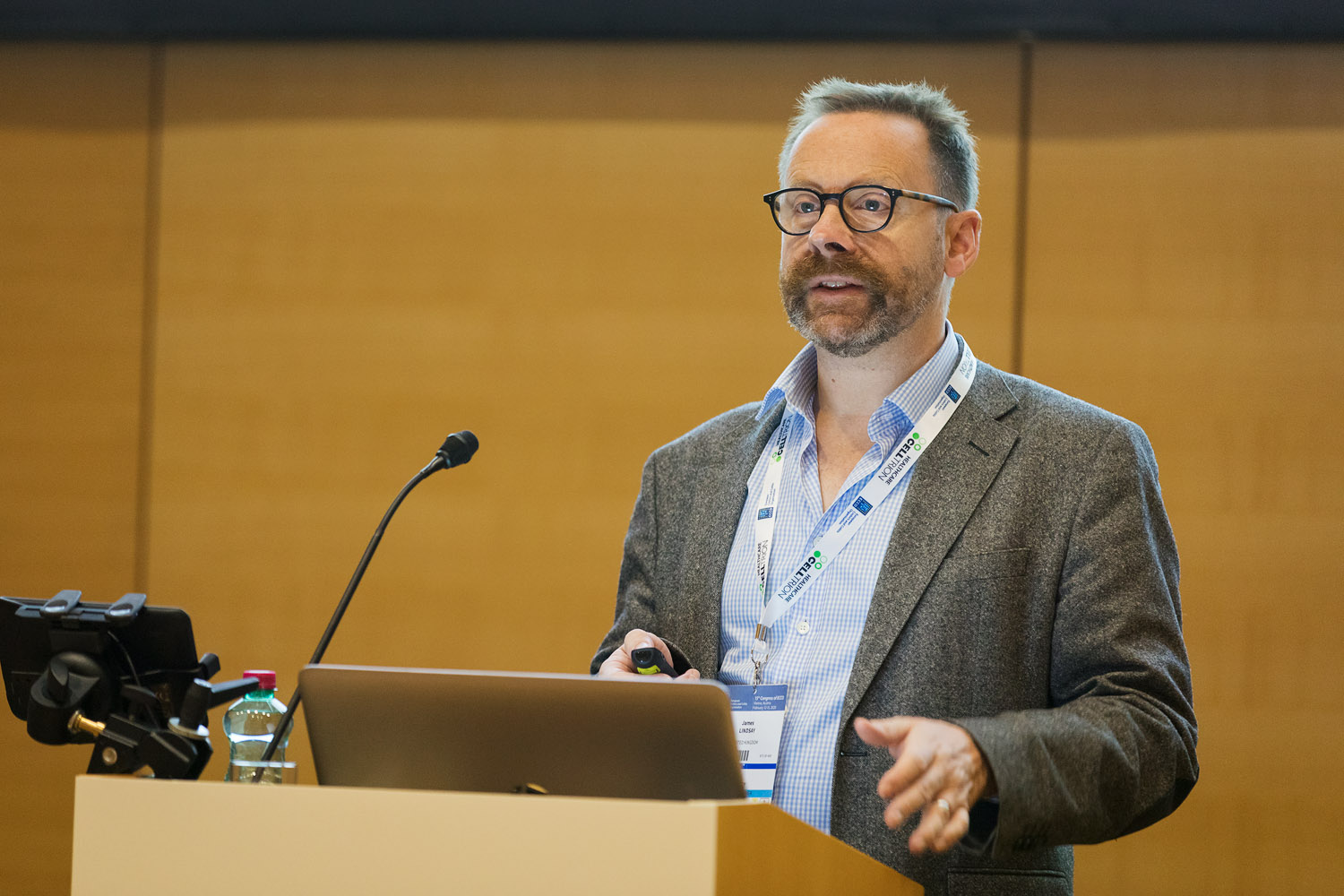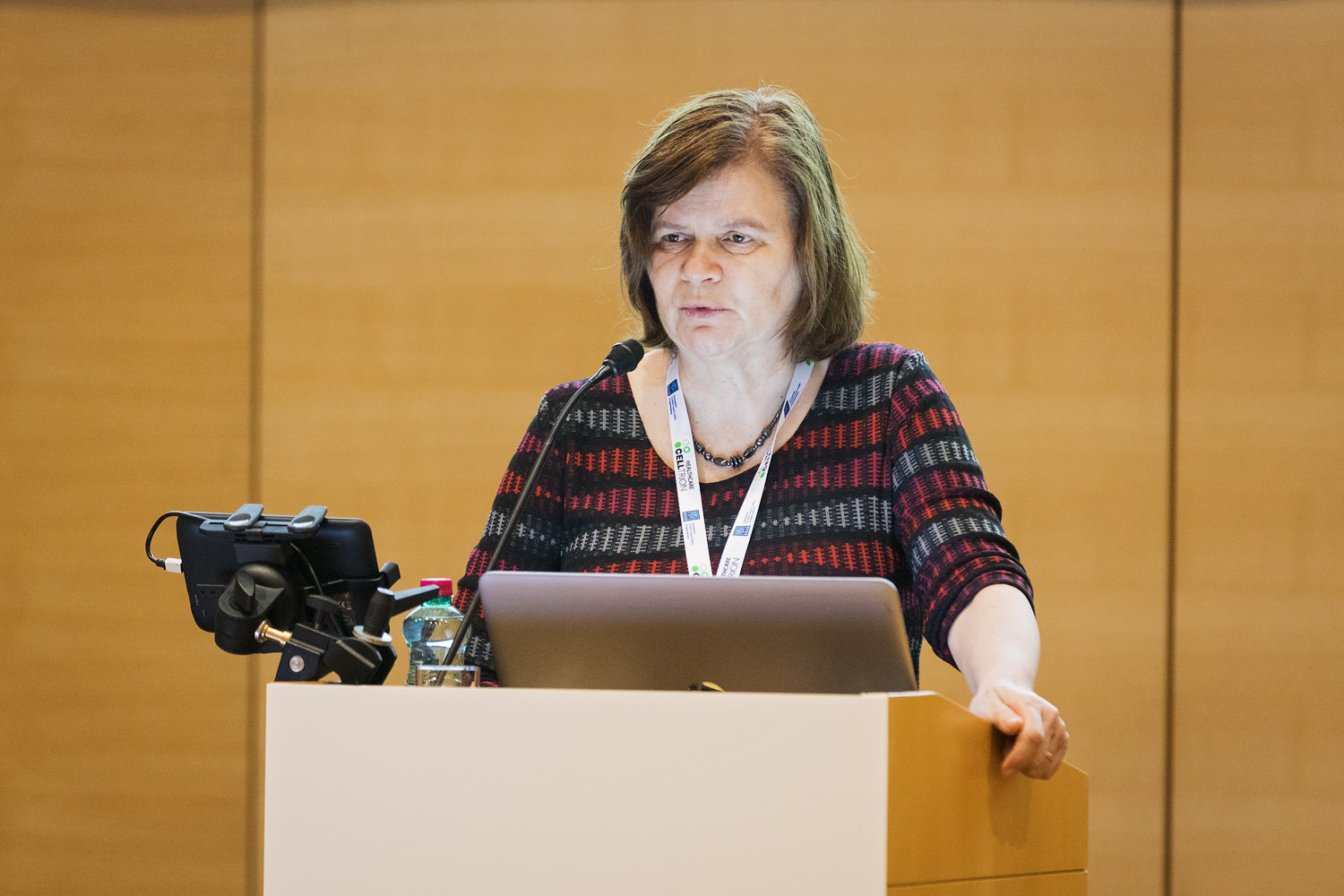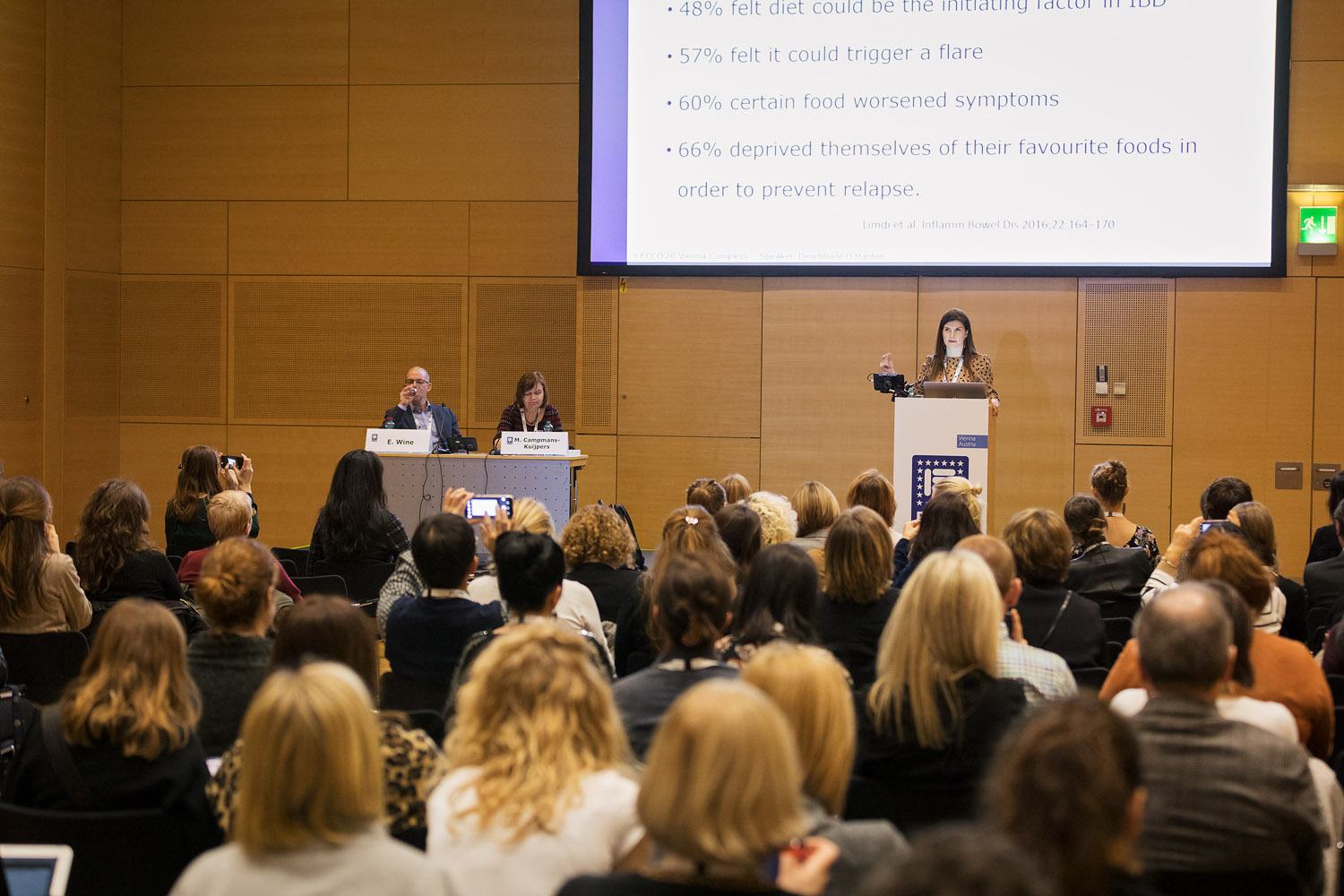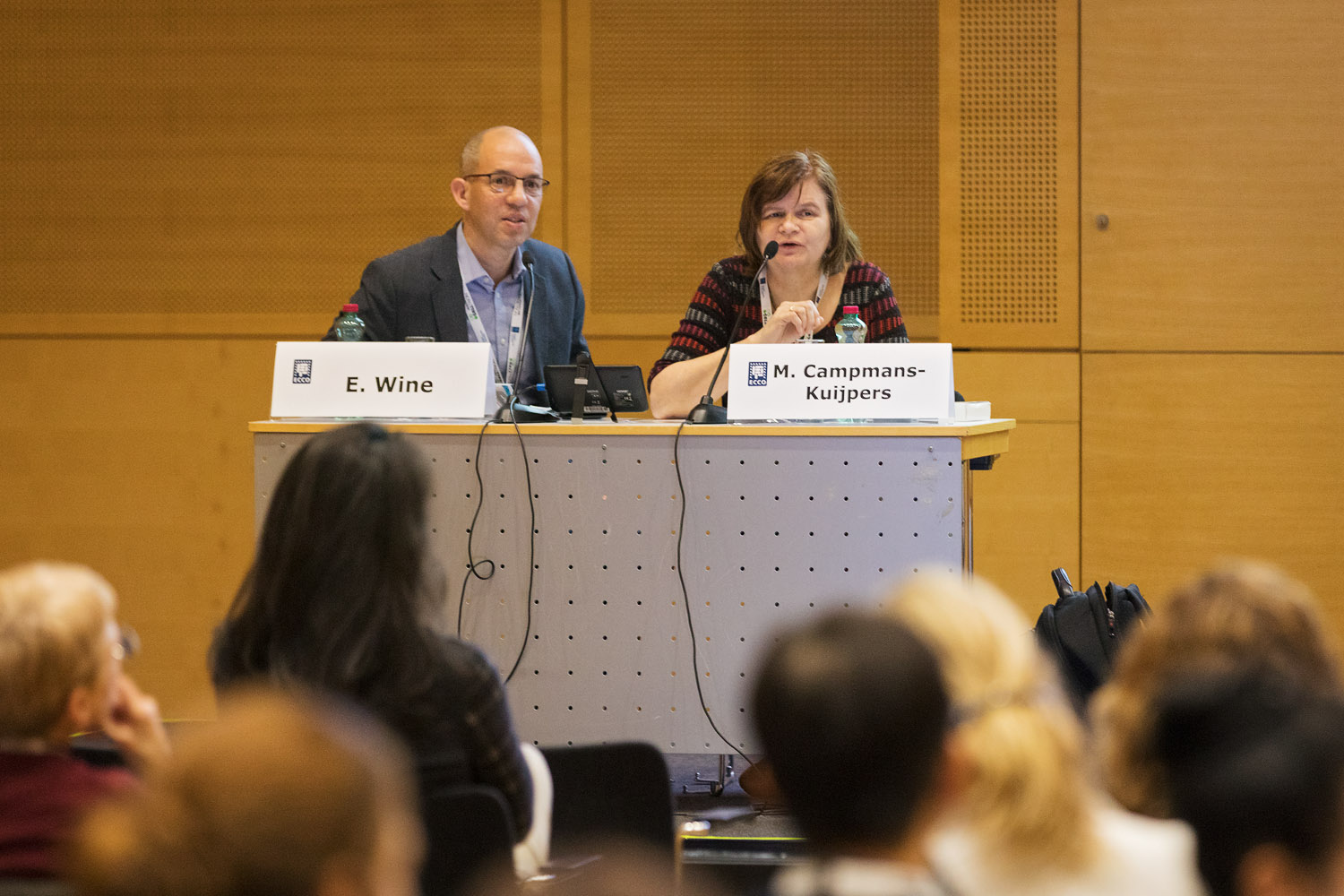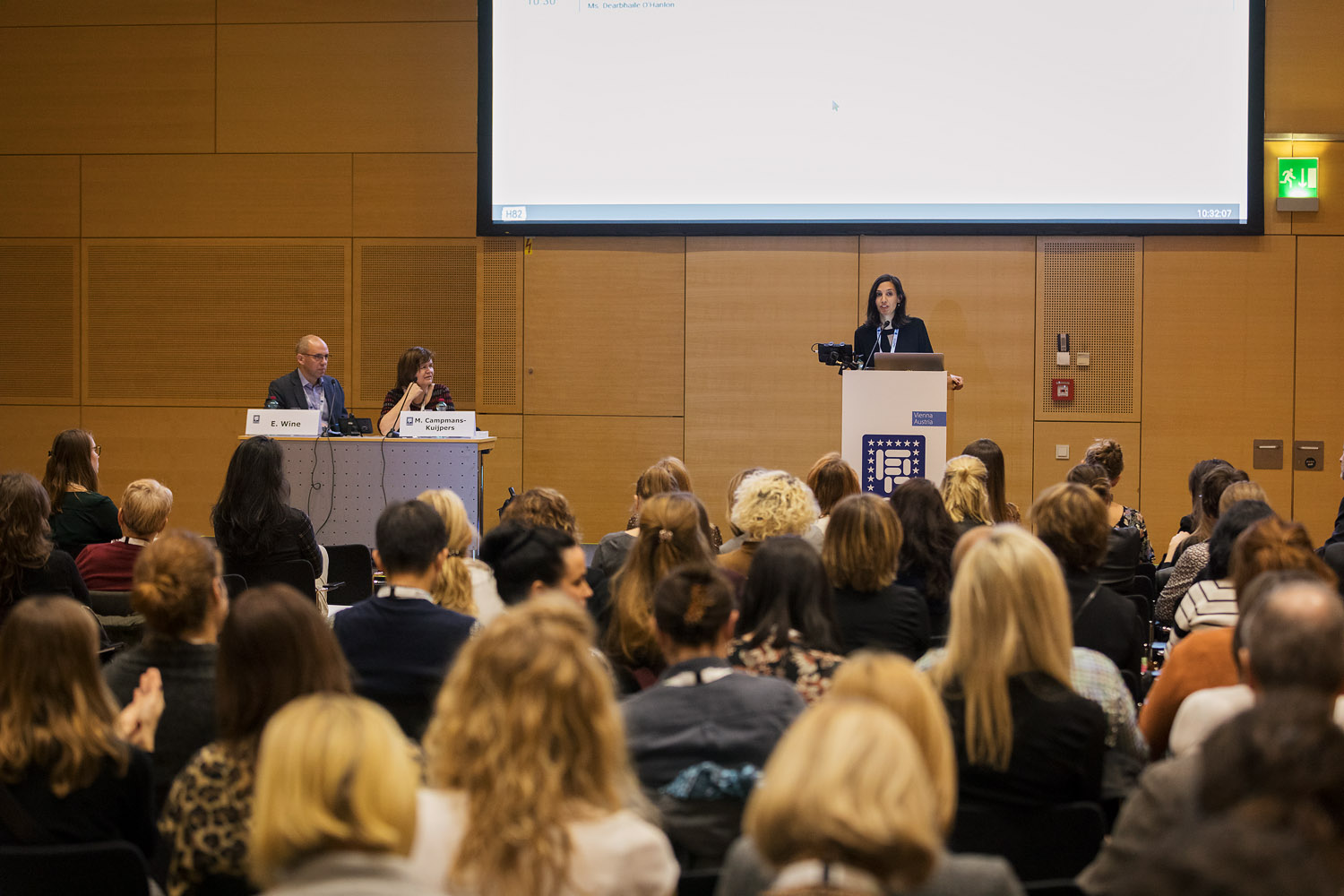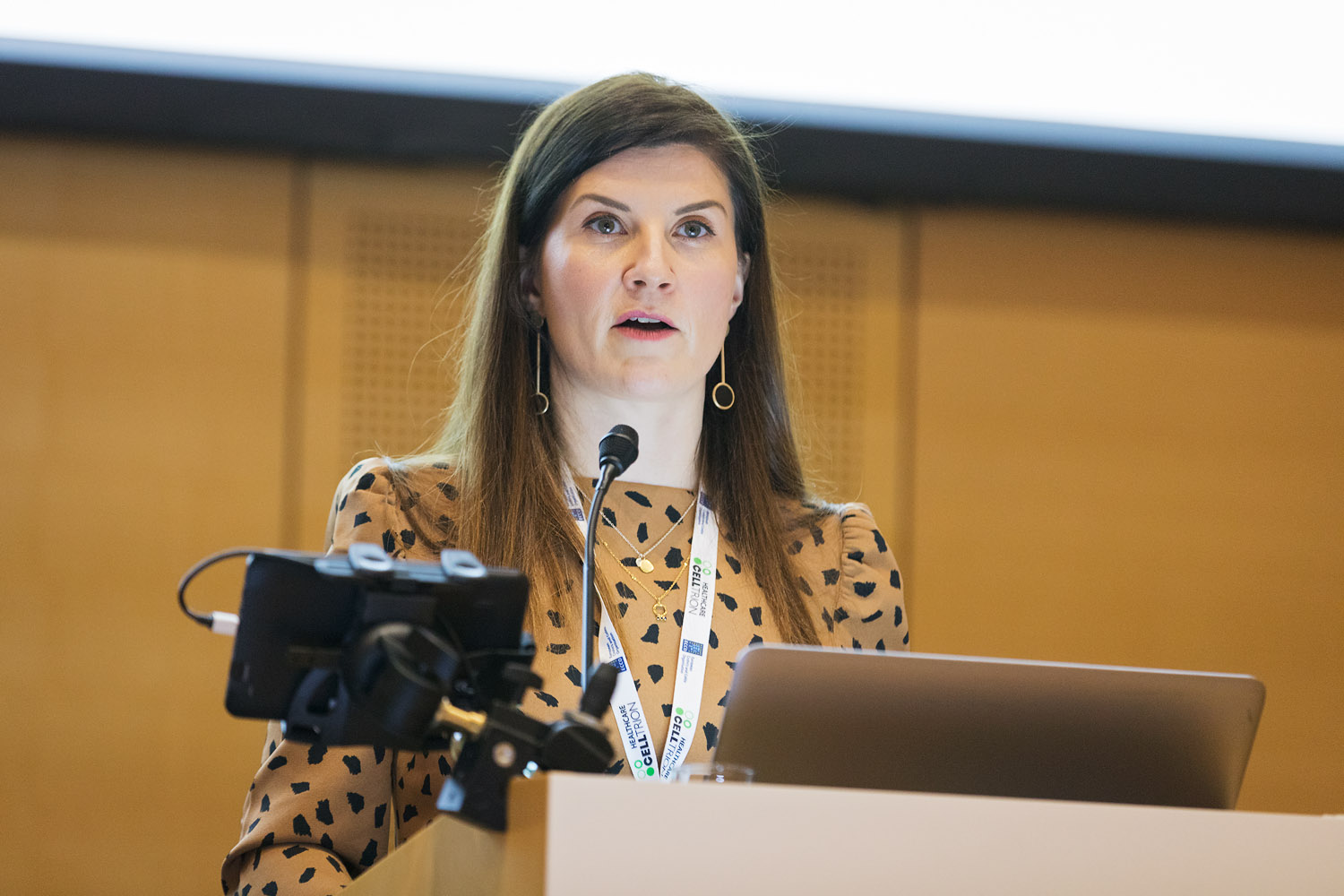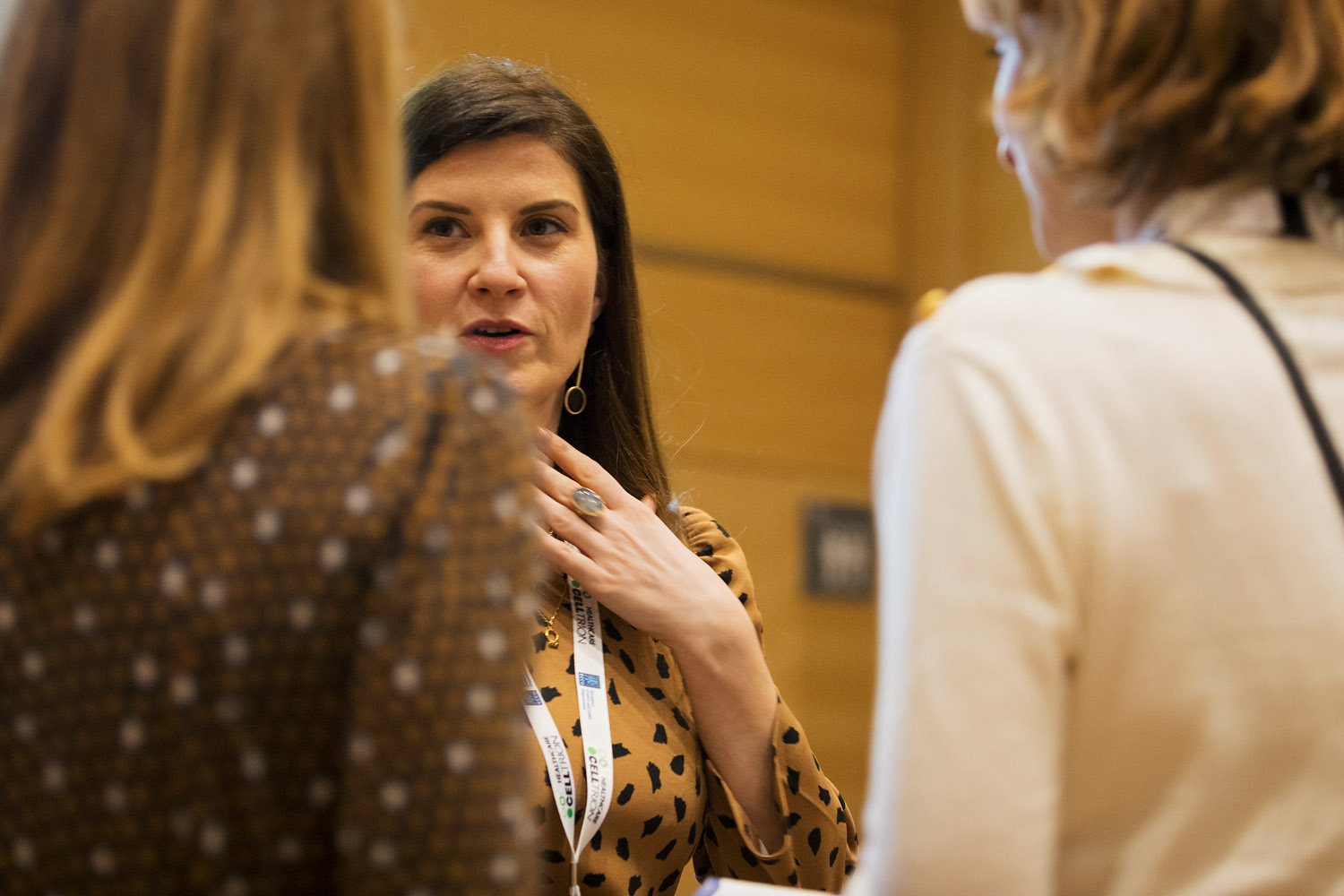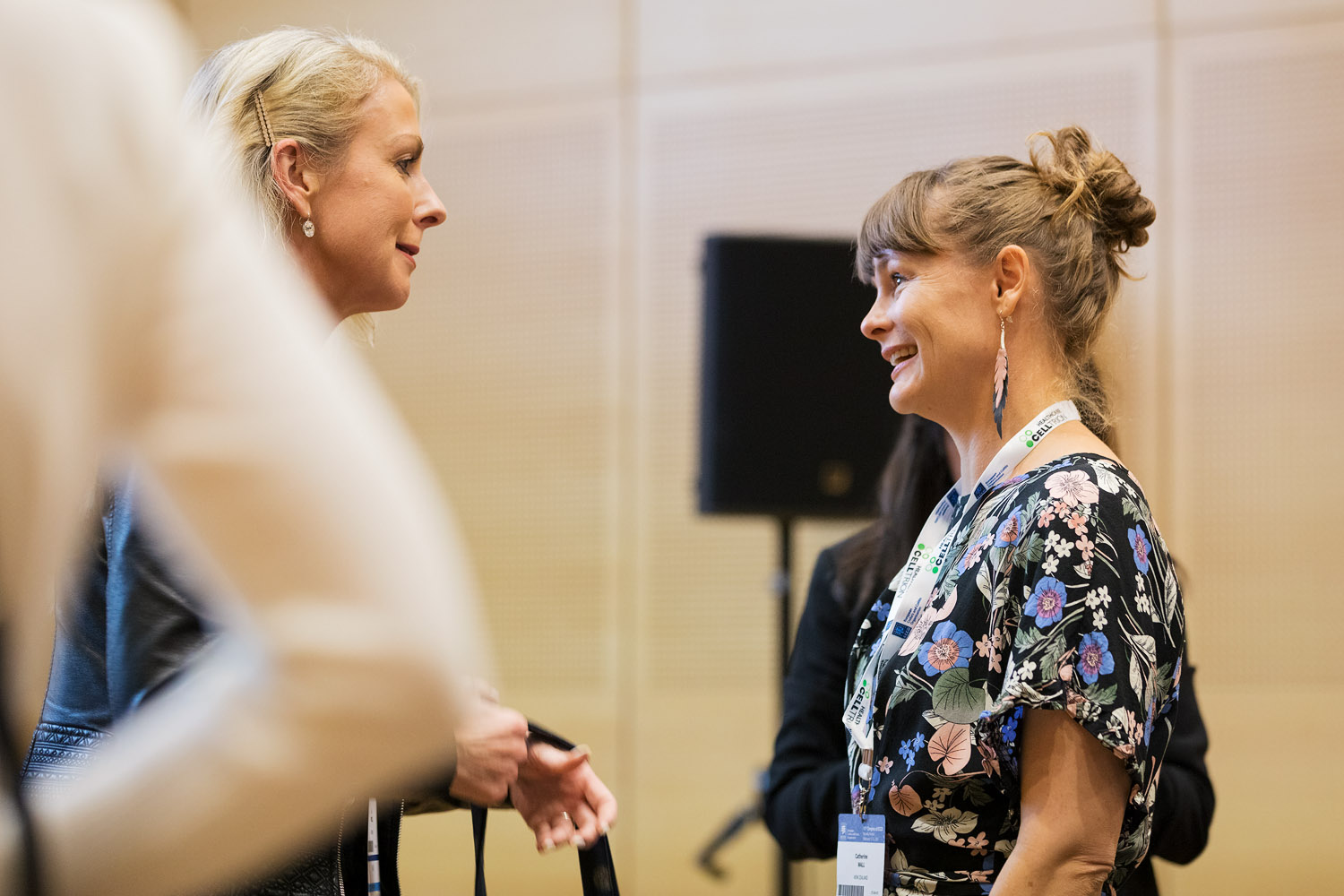Report on the 5th D-ECCO Workshop at ECCO'20
Eytan Wine, D-ECCO Member
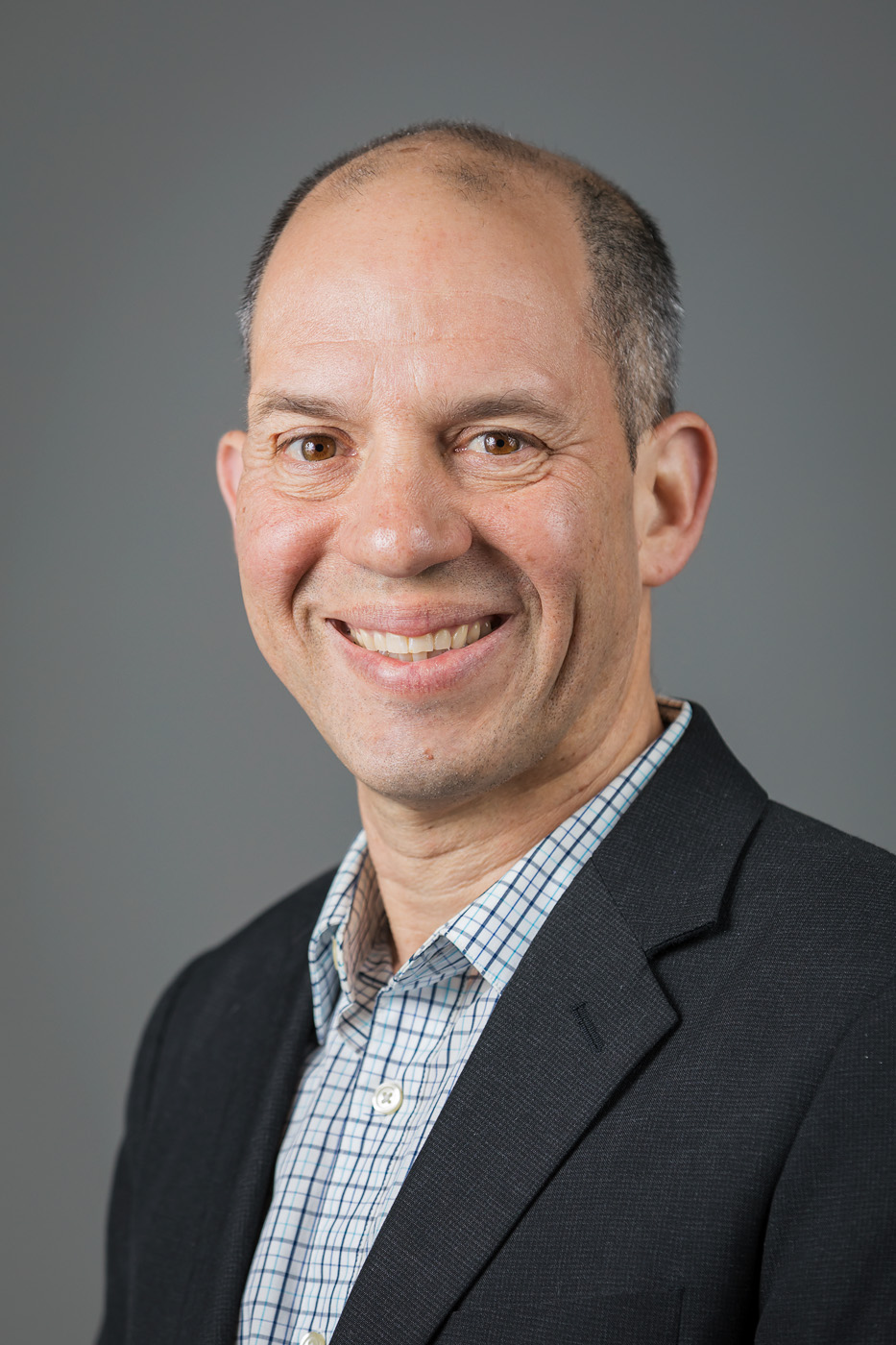 Eytan Wine Eytan Wine © ECCO |
D-ECCO, the Dietitians of ECCO, held its 5th Workshop as part of the 15th ECCO Congress in Vienna in February 2020. I will describe some of the highlights and main messages of the Workshop, which was attended by 104 registered delegates.
First, it is important to understand the setting for this meeting. Diet has long been an integral part of IBD research and management but over the last few years there has been increasing recognition of the role of nutrition in disease pathogenesis and treatment, as well as advances in dietary management and support. This was recognised by ECCO a few years ago, leading to the creation of D-ECCO and the D-ECCO Workshop. As a physician member of the D-ECCO Committee for the last year, I have learned to further value and appreciate the multidisciplinary nature of diet-related research and clinical care in IBD, which were well reflected in this Workshop.
Interestingly, the D-ECCO Workshop was attended by a variety of highly engaged individuals – dietitians, physicians, nurses, basic scientists and industry experts – and there was something there for everyone. The Workshop was divided into three sessions designed to satisfy the curiosity of all participants: science, diet and IBD; practical clinical nutrition in IBD; and a panel discussion/interactive session, which also included two oral abstract presentations.
After welcoming words from the D-ECCO Committee Chair, Marjo Campmans-Kuijpers, the first speaker, James Lindsay from London, gave an excellent overview on the role of diet in IBD pathogenesis and then focused on the specific role of the nuclear receptor aryl hydrocarbon receptor (AHR) and its interaction with dietary components (as AHR ligands); since AHR is an important mediator of environmental stimuli that impact mucosal immune responses in the gut, manipulating AHR through diet was introduced as an attractive mechanism linking diet to IBD pathogenesis and treatment.
The next talk, given by Marjo Campmans-Kuijpers, from Groningen, The Netherlands, centered around the diversity of nutritional fibres and how this might impact their effects in the human setting, specifically in IBD. The title, “Are all fibres created equal?”, conveyed this message very well; it is a significant issue, as many clinicians tend to oversimplify nutrition in general, and especially fibres. Dr. Campmans-Kuijpers provided an excellent and comprehensive overview of various sources of fibres and the differential impacts they could have in the gut. This was followed by some practical points on using fibre in relevant settings, supported by literature.
Konstantinos Gerasimidis, a former D-ECCO Committee Member and dietitian-scientist from Glasgow, took on the difficult task of presenting the pitfalls of dietary assessment in research. He provided excellent examples of how challenging some common approaches are and offered solutions. After hearing his talk, it is obvious that measuring diet and linking diet to clinical outcomes requires extensive expertise and careful planning. The advantages and concerns regarding use of diet diaries, food frequency questionnaires and other tools were reviewed and some practical suggestions were provided on what to use when.
The final talk of the scientific session was provided by… me (Eytan Wine from Edmonton, Canada). This was designed to follow the talk on challenges with human diet research and to consider whether other experimental approaches, such as animal studies and in vitro models, could serve as alternatives. The short answer is – not really, but there certainly are some settings in which animal (mostly mice) studies could be appropriate. The use of ‘humanised mice’ and some recent studies offering clear mechanistic insights into the role of diet in IBD were discussed, but the central message supported the need to focus on well-designed and innovative studies using human samples, complemented by non-human models. Ex vivo models and organoids were also mentioned as important research tools.
The second session was more practical and clinically focussed. A joint presentation by Catherine Wall from Christchurch, New Zealand, and Michel Adamina from Winterthur, Switzerland, provided the highlights from the S-ECCO & D-ECCO Topical Review. This important project includes consensus advice from surgeons and dietitians on perioperative nutritional management of IBD. The talk covered all aspects, including assessment, therapy and improvement of clinical outcomes.
Lihi Godny from Petah Tikva, Israel, provided an excellent and very practical review on dietary management in patients after ileal pouch surgery, following colectomy. This is a highly specialised field, where few individuals have sufficient expertise and experience in managing these patients. Armed with some of the limited guidance from the available literature, but mostly with practical advice, Lihi presented an approach to using diet to control symptoms (such as bloating, diarrhoea and nocturnal bowel movements), but also discussed the science behind diet in this setting and how the microbiome could be targeted through diet to prevent active disease.
The last talk in this session was given by another D-ECCO Committee Member, Dearbhaile O'Hanlon from London, and included presentation of complex cases in which diet was key to patient management. The journey of these patients, one of whom was affected by severe complications and treatment failures, provided an excellent platform for using our knowledge on diet in IBD, including some of the lessons learned in the previous talks.
The final interactive session started with a stimulating debate on whether diet is needed in the era of biologics. The former Chair of the D-ECCO Committee, Rotem Sigall-Boneh from Tel Aviv, Israel, and Lissy de Ridder, a paediatric IBD specialist from Rotterdam, The Netherlands, presented both sides of the argument but ended up reaching a united, important conclusion – there is certainly a role for both diet and biologics; we just need to better understand when to use each option. The two best diet-related abstracts were then presented by Vera Peters from Groningen, The Netherlands (on development of an IBD Nutritional Questionnaire) and Stefanie Howaldt from Hamburg, Germany (on oral ferric maltol and IV iron in IBD). The Workshop concluded with a lively panel discussion (Drs. Wall, O’Hanlon, Sigall-Boneh, de Ridder and Wine), with multiple questions presented by the audience.
The 5th D-ECCO Workshop was undoubtedly one of the highlights of the ECCO Congress for me and many others I spoke to and the Workshop is certain to be continued to be an excellent platform for scientific and clinical discussion and learning for all those interested in diet/nutrition in IBD.
Eytan Wine
D-ECCO Committee Member
Browse through the gallery:
Pictures are subject to copyright © ECCO
